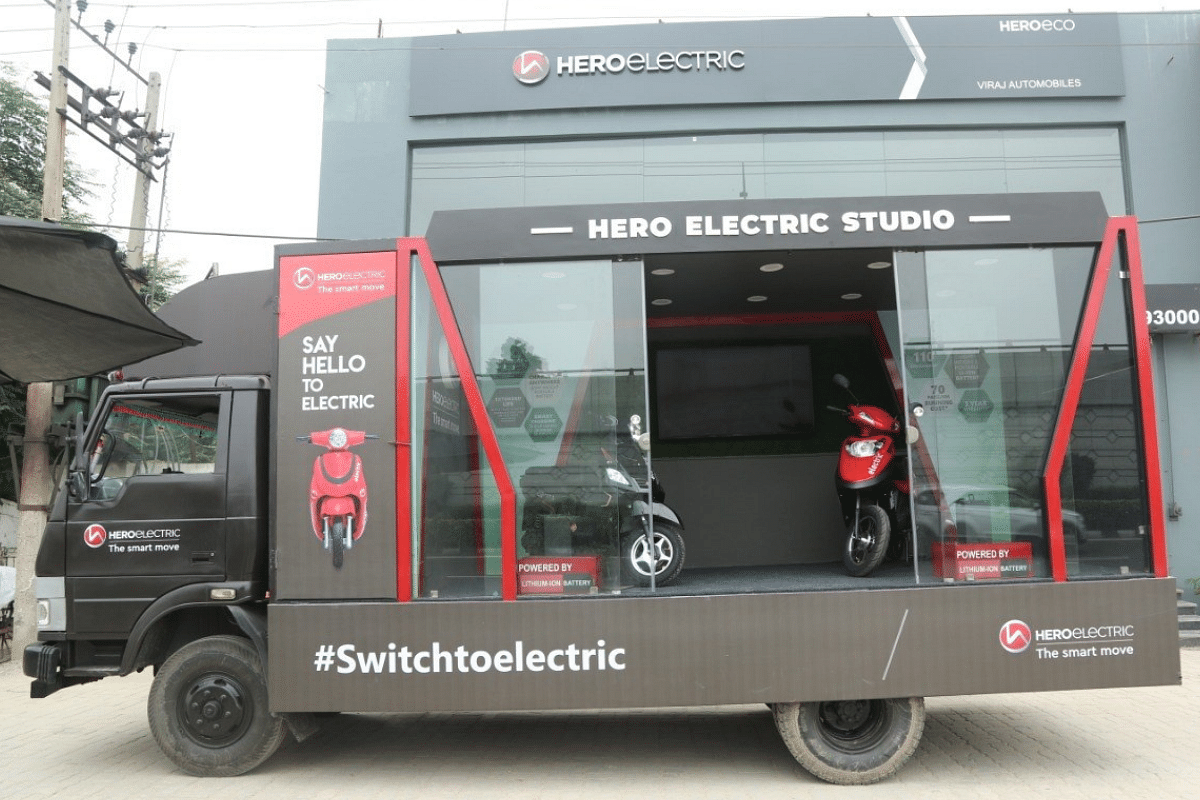Business
The Battle Over The “Hero” Brand Name, Explained
- Given the strong brand value of the “Hero” brand, securing brand rights over two-wheelers is an important factor for Hero Electric’s owners.

Hero Electric (Photo: Hero Electric/Facebook)
Under the guidance of Brijmohan Lall Munjal, who is the patriarch of the Hero Group, the group assets were divided among family members under a settlement agreement.
However, today (9 January 2022), Hero Electric is defending its territory from a business run by the extended family of the promoter group.
This company is run by Naveen Munjal, the grandson of BM Munjal’s late brother Dayanand Munjal.
What’s The Issue?
It appears that Hero Electric is looking to protect its brand name from being used by any other member of the family.
According to an Economic Times report from 2010, Vijay Munjal, Naveen Munjal’s father, would be the owner of Hero Exports, Hero Electric, and Sunbeam Auto, according to the family agreement.
Previously, Pankaj Munjal, of Hero Cycles, was caught in a tussle with Hero Electric over the use of the “Hero” brand for electric vehicles with a throttle. Hero Cycles produces e-cycles under Hero Lectro.
More recently, Hero Electric moved the Delhi High Court again to prevent Hero MotoCorp, run by Pawan Munjal, from using the Hero brand name for any of its electric vehicles.
However, Hero MotoCorp appears to have selected “Vida Electric” as the brand name for its range of electric-vehicle (EV) two-wheelers. Given this fact, the move by Hero Electric appears to be a precautionary move to prevent any issues in the future.
Why Now?
While the headline numbers and narrative for the two-wheeler space appear to be lacklustre, electric wheelers have fared better.
“High cost of ownership, bad rural sentiment, work from home and the latest threat of omicron continued to impact sales,” said a press release from the Federation of Automobile Dealers Associations.
Two-wheeler sales fell by 20 per cent in December 2021 over December 2020. However, the sales of two-wheeler EVs continued to grow multi-fold.
Hero Electric saw its sales jump from 1,545 units in December 2020 to 6,058 units in December 2021. Its nearest competitor, Okinawa Autotech, a two-wheeler EV manufacturer, grew its sales from 613 in December 2020 to 6,098 in December 2021.
Though the data excludes a few areas, EVs have clearly become popular with audiences, especially in the two-wheeler and three-wheeler markets.
Today, the total cost of ownership of two-wheeler EVs is comparable with two-wheelers with traditional internal combustion engines for several use cases. Further, the government has introduced subsidies to make EVs affordable. As a result, at a time when commodity prices, such as for crude oil, are at an all-time high, the demand for EVs has grown substantially.
Further, the low-speed EV space has been growing rapidly as it requires no registration or licensing requirements, and costs lower.
In contrast, all traditional players saw their sales fall for the same period. With growth in the legacy business slowing down, EVs are becoming an attractive proposition for these players today.
Hero MotoCorp has invested in Ather Energy and currently owns 35 per cent of the company. However, it has plans to release its own EV product in the near-future.
Hero Electric is already the largest player in the two-wheeler EV space. It plans to increase its capacity to 50 lakh units from the current 1 lakh levels over the next five years as it anticipates a strong demand for EVs. It has already received funding from several private equity players recently, and is said to be looking for another large funding round.
Brand "Hero"
Given the strong brand value of the “Hero” brand, securing brand rights over two-wheelers is an important factor for Hero Electric’s owners. While other branches of the family, including Hero MotoCorp, can manufacture and market EVs, they cannot do so under the “Hero” brand, according to Hero Electric.
However, according to reports, the Hero MotoCorp side believes that the “Hero Electric” brand might be off limits. But the “Hero” brand has no such constraints. If Hero MotoCorp is denied the right to use the Hero brand name, it could potentially harm the future prospects of the EV product.
In a highly competitive space with several new well-funded players, a strong brand name can ease the job of attracting customers. Years of investment in brand-building could prove to be futile for Hero MotoCorp in the EV space if it is unable to use the brand name.
Support Swarajya's 50 Ground Reports Project & Sponsor A Story
Every general election Swarajya does a 50 ground reports project.
Aimed only at serious readers and those who appreciate the nuances of political undercurrents, the project provides a sense of India's electoral landscape. As you know, these reports are produced after considerable investment of travel, time and effort on the ground.
This time too we've kicked off the project in style and have covered over 30 constituencies already. If you're someone who appreciates such work and have enjoyed our coverage please consider sponsoring a ground report for just Rs 2999 to Rs 19,999 - it goes a long way in helping us produce more quality reportage.
You can also back this project by becoming a subscriber for as little as Rs 999 - so do click on this links and choose a plan that suits you and back us.
Click below to contribute.
Latest